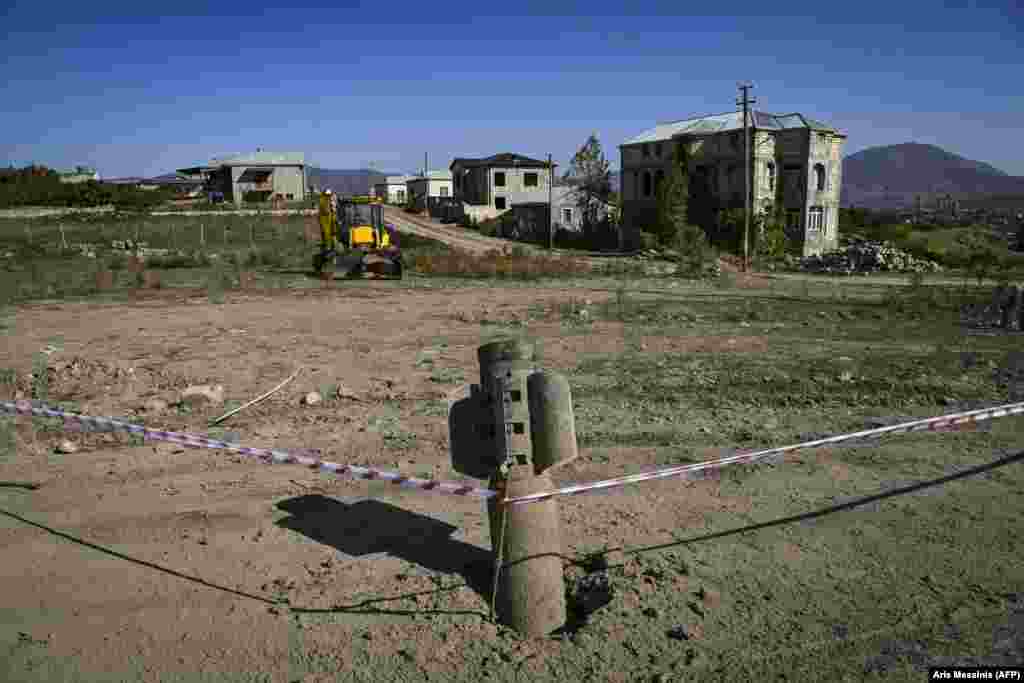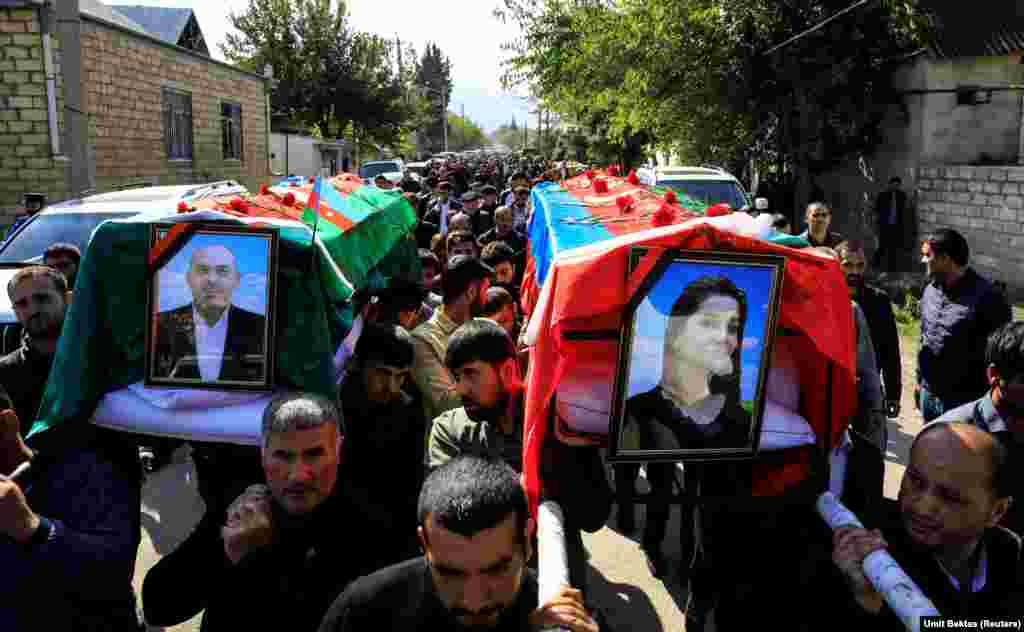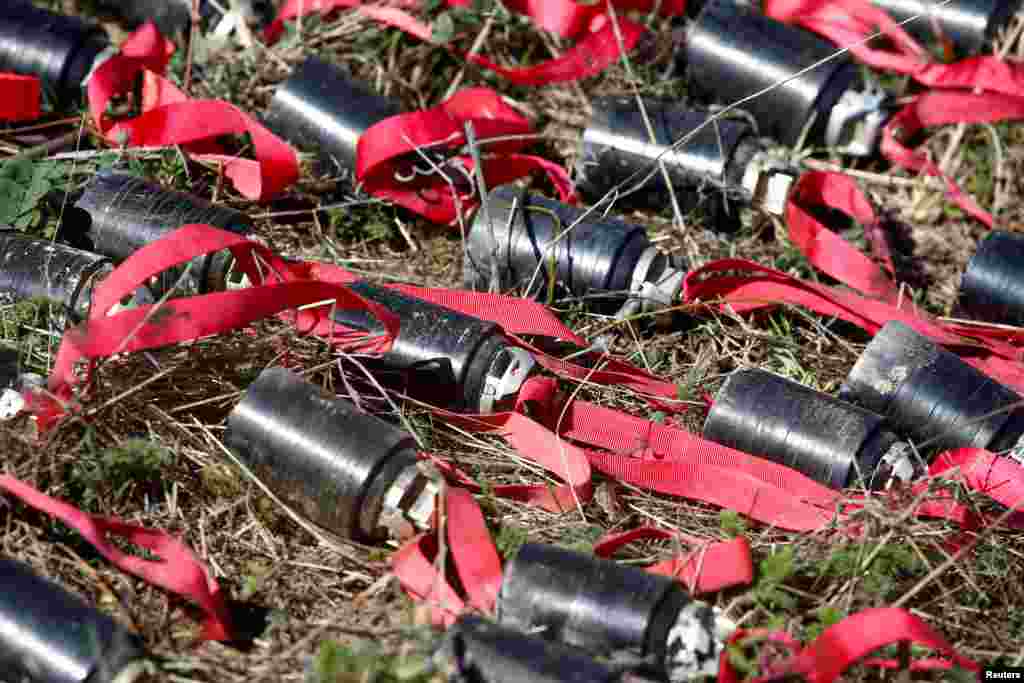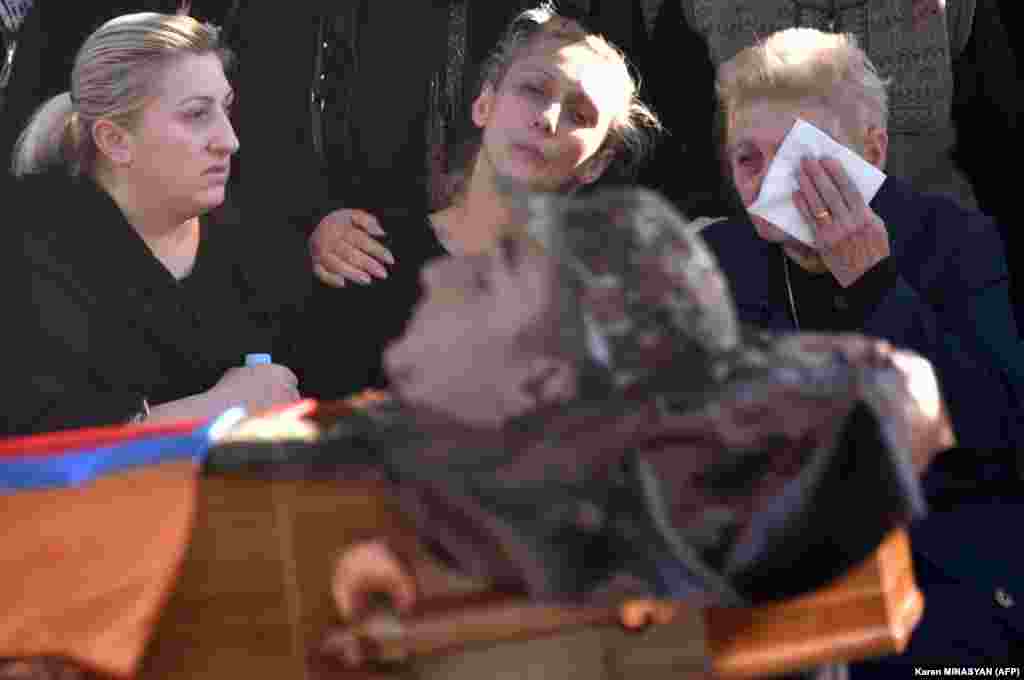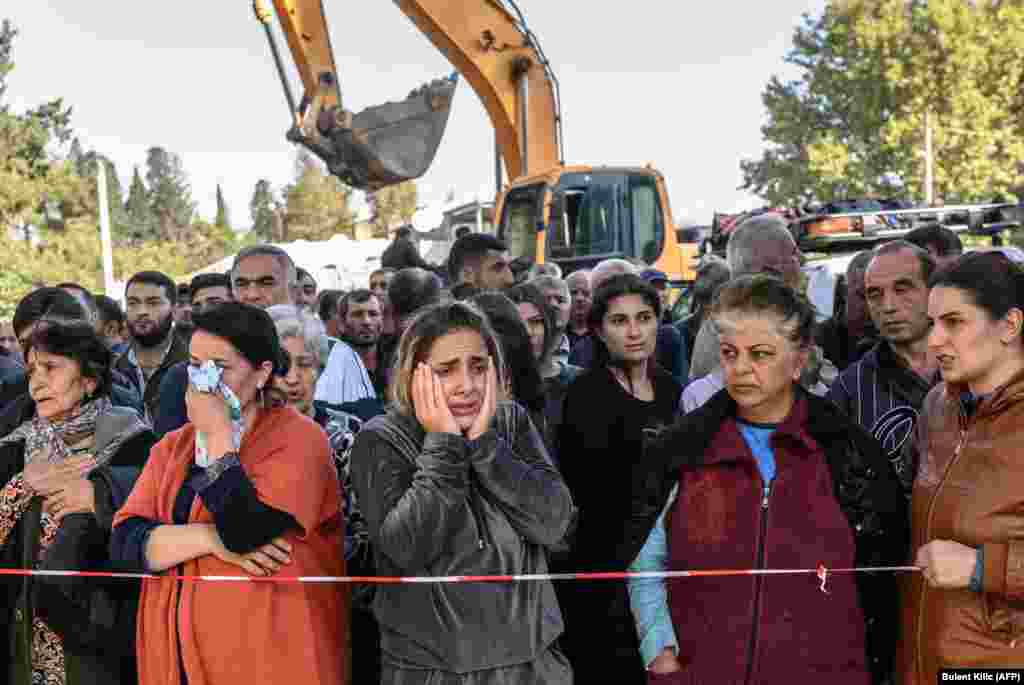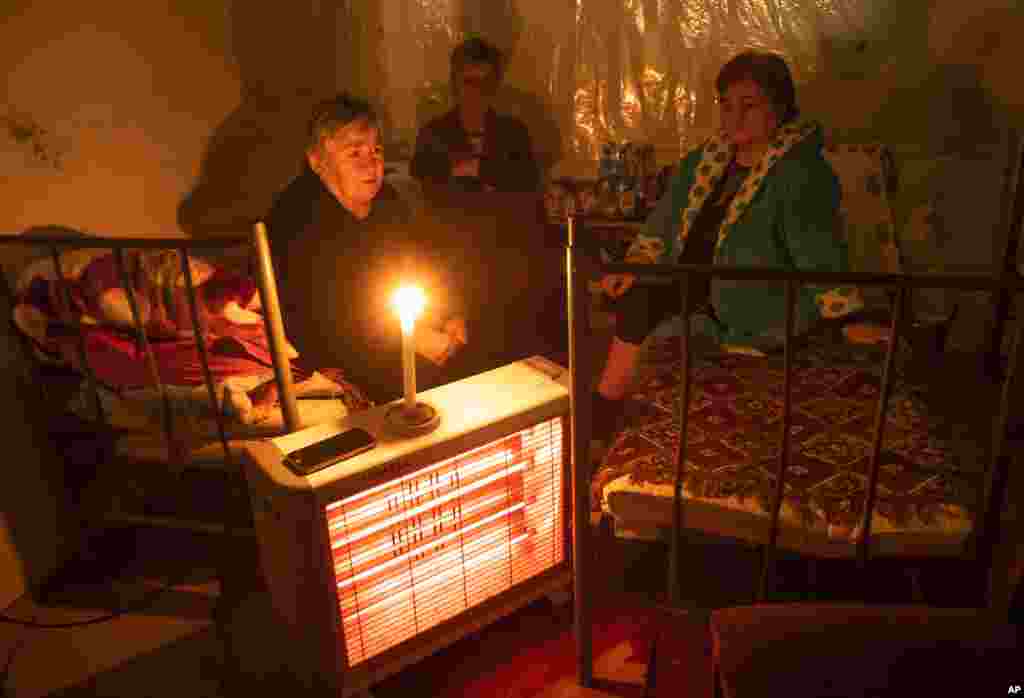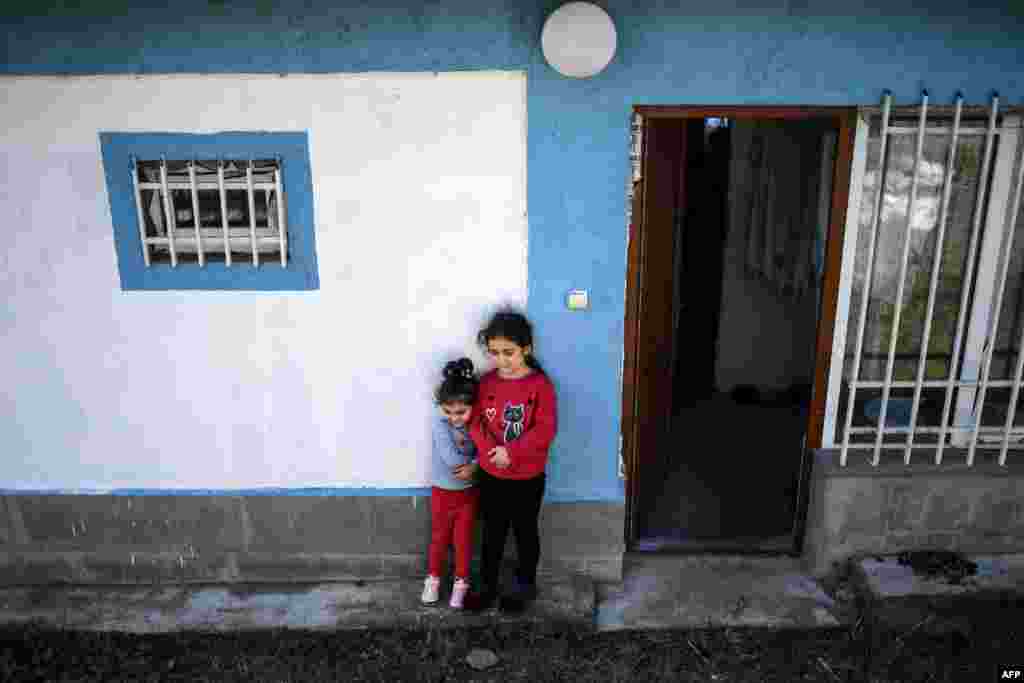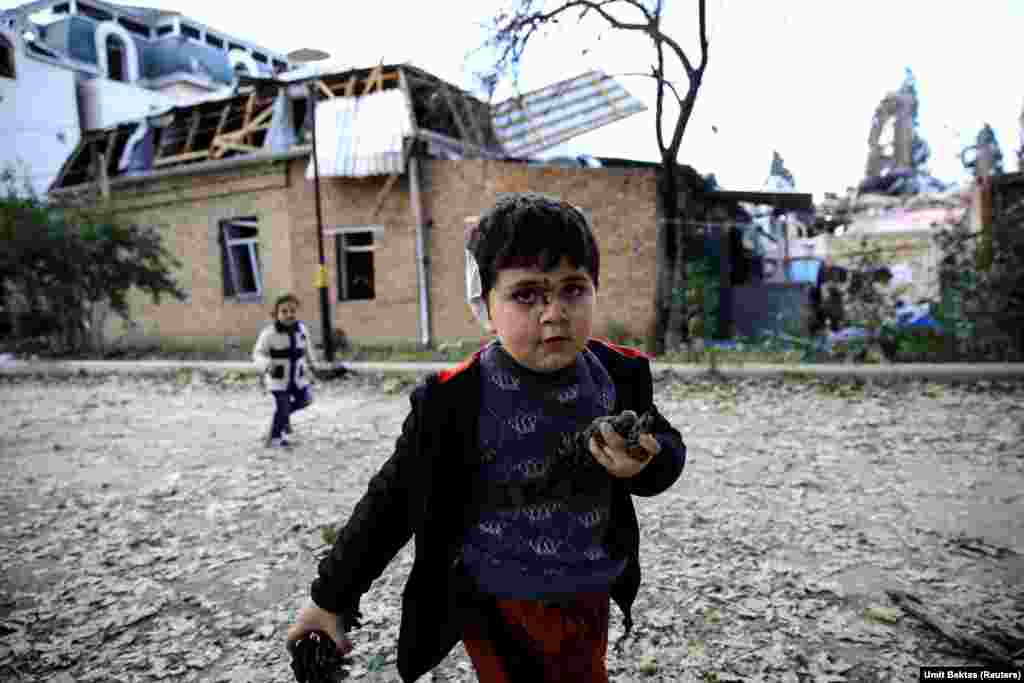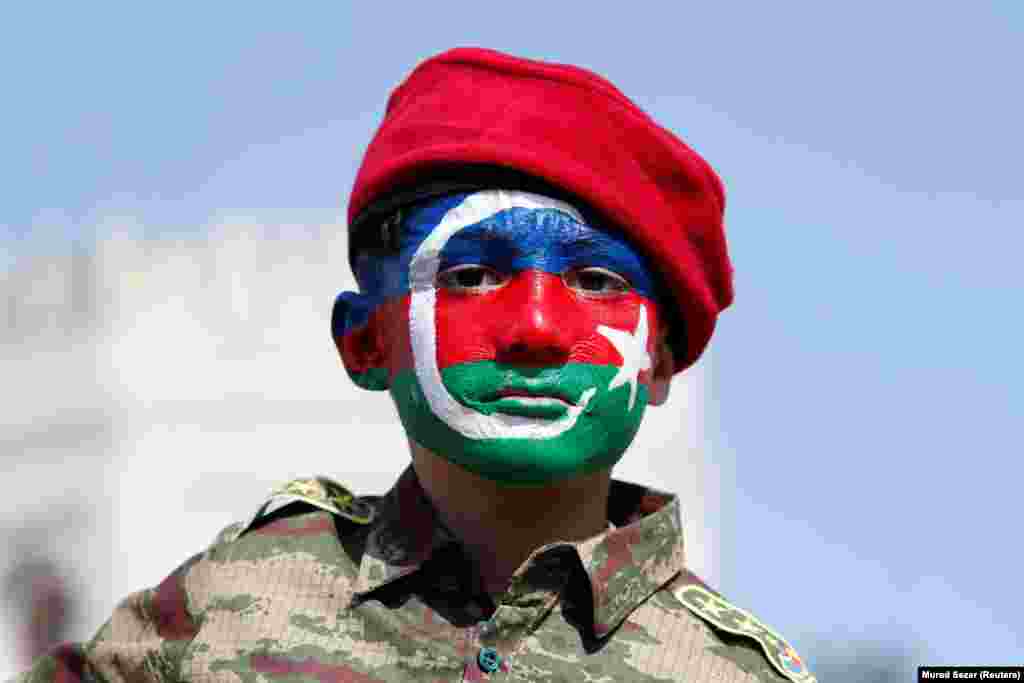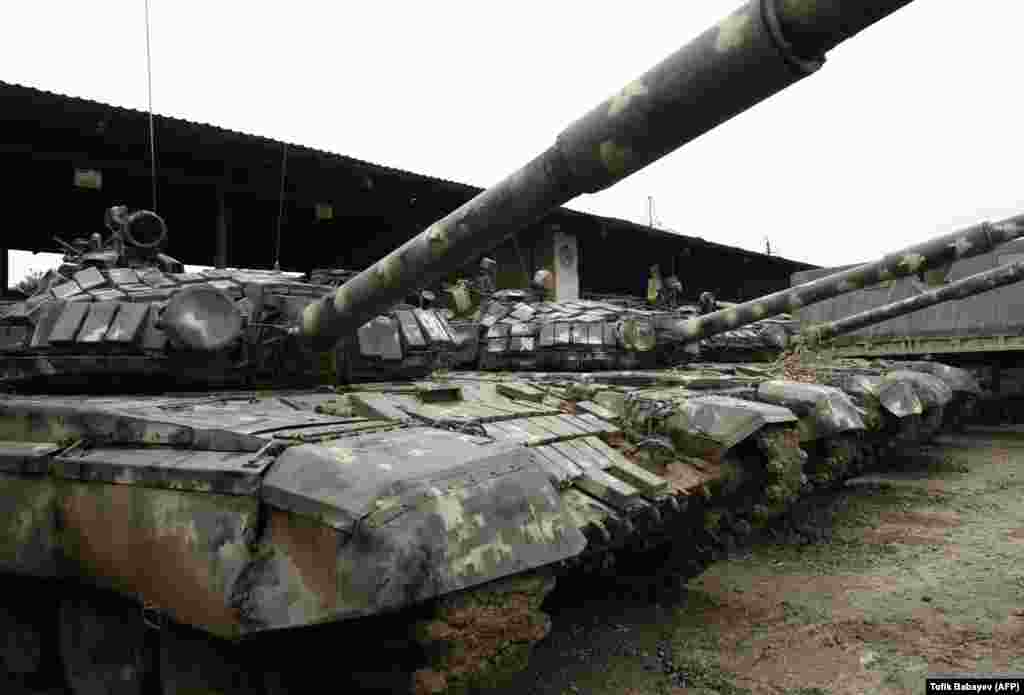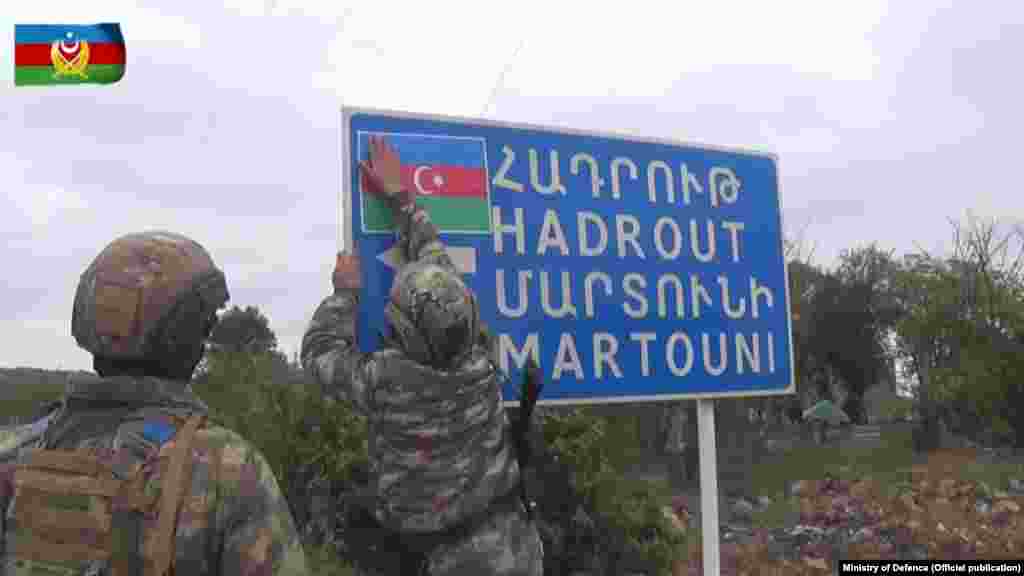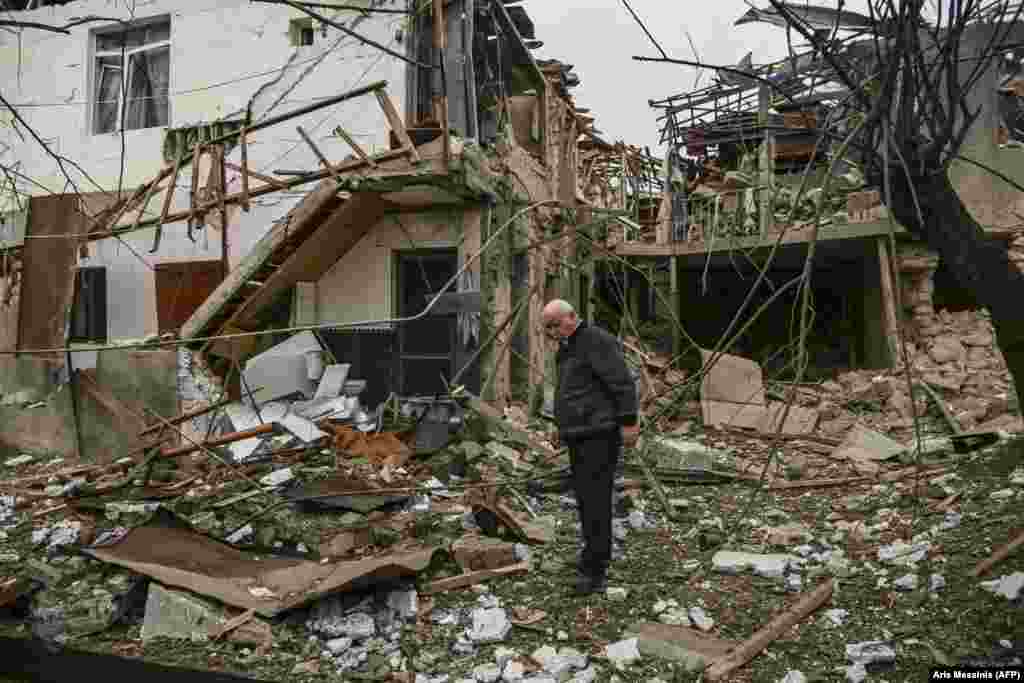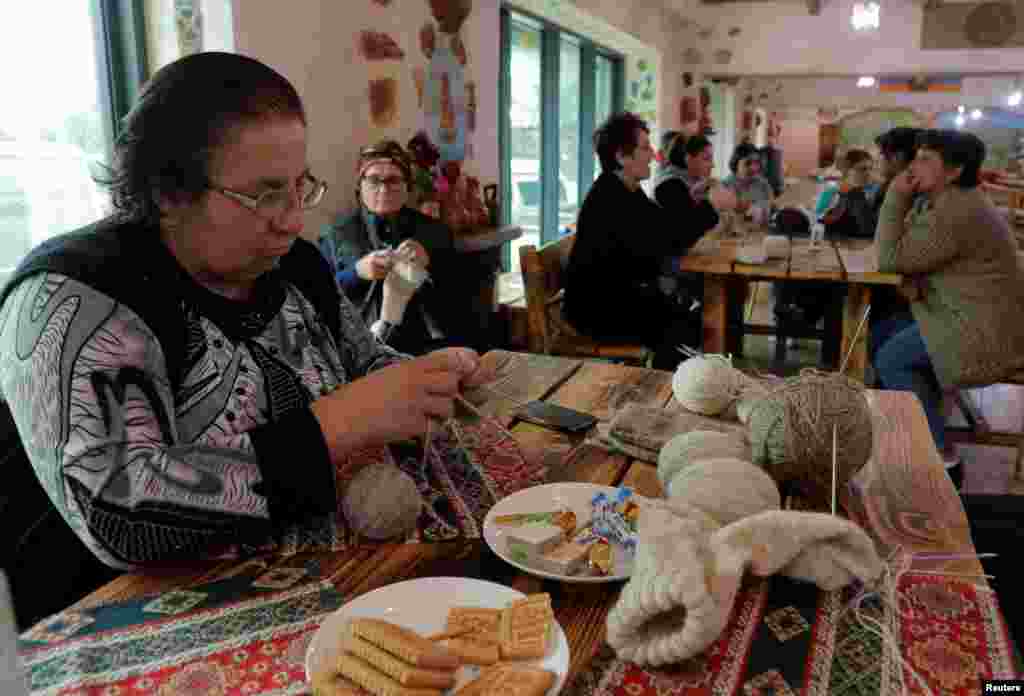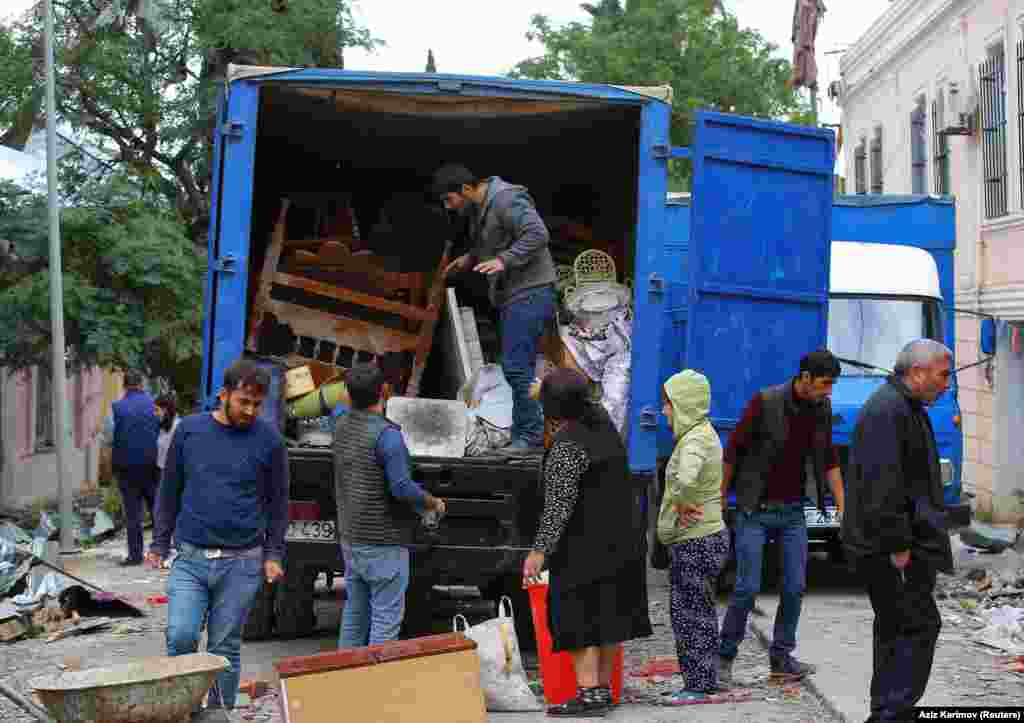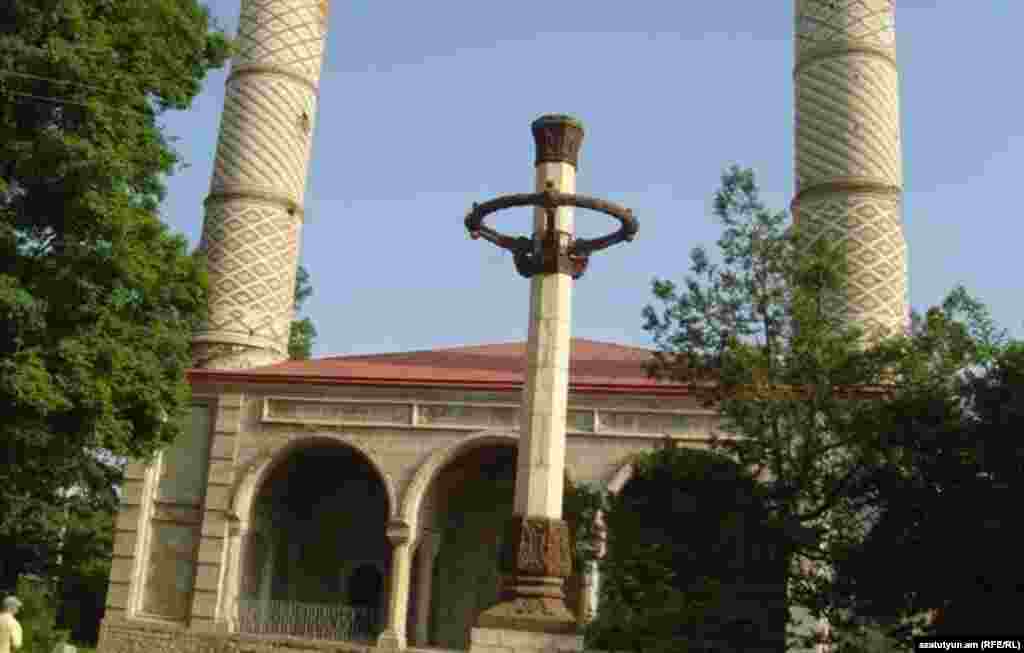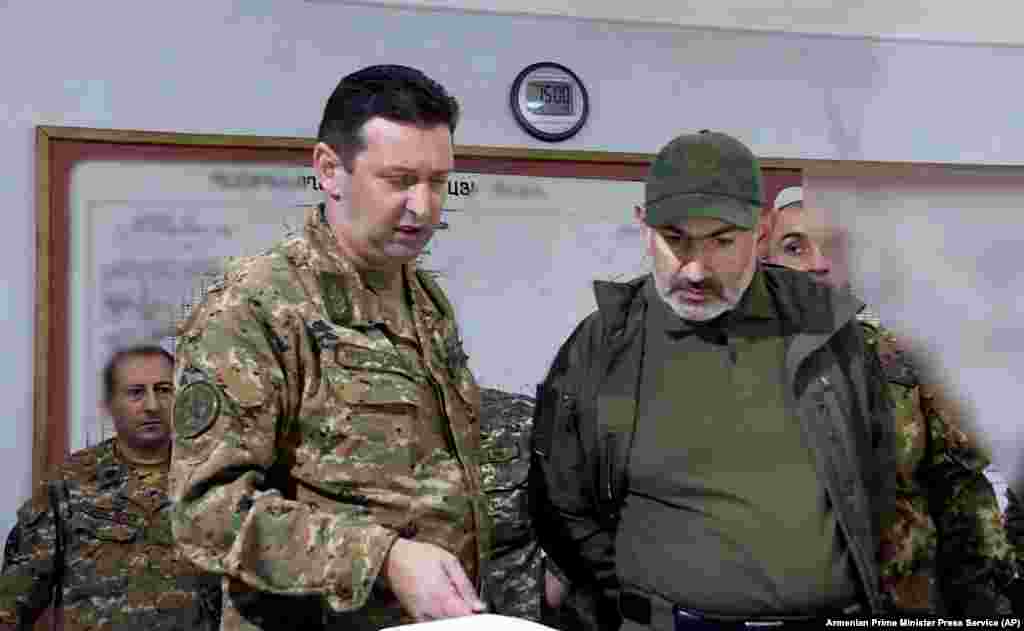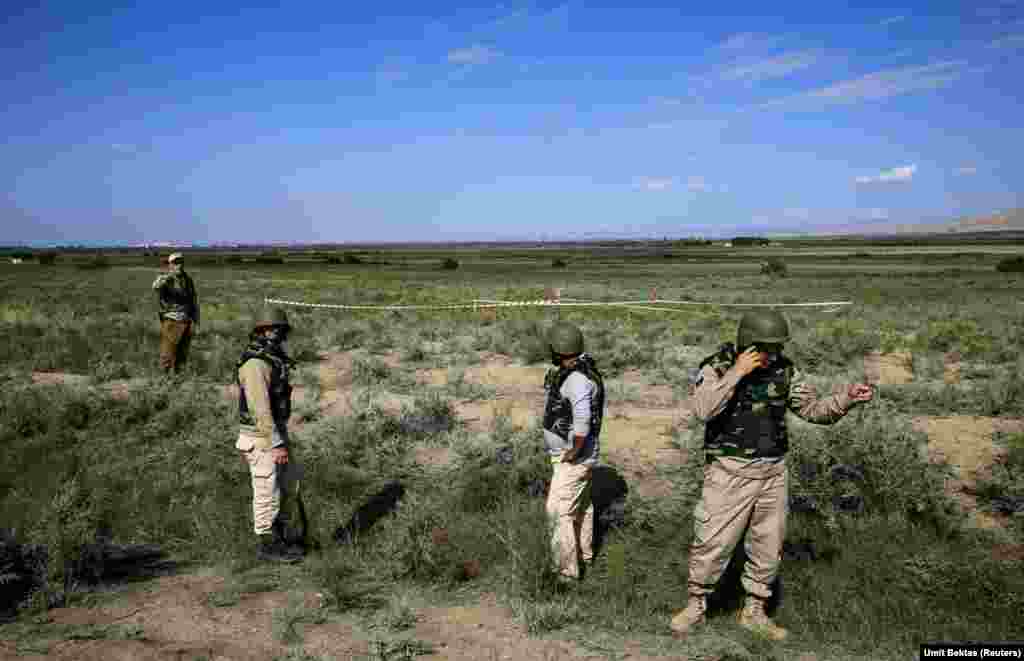With hundreds killed, the October 10 Moscow-brokered cessation of hostilities between Azerbaijan and Armenia and ethnic Armenian separatist forces over Azerbaijan’s breakaway Nagorno-Karabakh region and seven surrounding Armenian-occupied territories ended almost as soon as it had begun. Nothing suggests that any peacemaking can now have lasting consequences, one Russian analyst told Current Time.
After over two weeks of military conflict, ending the fighting immediately “is practically impossible,” commented Aleksei Malashenko, research director at Berlin’s non-profit Dialogue of Civilizations Research Institute. The necessary “inertia” does not exist, he said: Azerbaijan claims that it has regained pieces of territory it lost during its 1992-1994 war with Armenia and Karabakhi separatists, while Armenia and its Karabakhi allies have no interest in ceding any ground to Azerbaijan.
“So far, it’s not known at which place a dot can be placed” to define who holds what territory, added Malashenko.
On October 14, the Russian Defense Ministry called on both Armenia and Azerbaijan to uphold their October 10 ceasefire agreement. Russian Foreign Minister Sergei Lavrov has proposed that Russian observers be sent to the conflict zone if the two countries agree – a proposal that recollects former Russian observer missions to two other South Caucasus conflicts, breakaway Abkhazia and South Ossetia in Georgia. Neither of those missions prevented war between Georgia and Russia from erupting in 2008.
As yet, no clear plan appears to exist for how Azerbaijan would peacefully reintegrate Nagorno-Karabakh and seven surrounding regions even if it did regain control of them.
“Even if, let’s suppose, Azerbaijan will be able to massively take control of the lost territories, even in this case, the foundation of the conflict does not change,” said Thomas de Waal, author of Black Garden: Armenia And Azerbaijan Through Peace And War and a senior fellow with the Carnegie Europe think tank.
But, worry Armenian and Azerbaijani analysts, its dimensions could.
On October 14, Azerbaijan acknowledged striking military equipment located in eastern Armenia, on the border with the Armenian-occupied region of Kelbajar, recognized internationally as part of Azerbaijan. Under the terms of an agreement with Armenia, Moscow, which maintains an army base in the northwestern Armenian town of Gyumri, not far from the Turkish border, has pledged to defend Armenia’s security.
As yet, though, it has given no sign of wanting direct military involvement in the conflict.
“Russia supports only itself,” said Malashenko.
After over two weeks of military conflict, ending the fighting immediately “is practically impossible,” commented Aleksei Malashenko, research director at Berlin’s non-profit Dialogue of Civilizations Research Institute. The necessary “inertia” does not exist, he said: Azerbaijan claims that it has regained pieces of territory it lost during its 1992-1994 war with Armenia and Karabakhi separatists, while Armenia and its Karabakhi allies have no interest in ceding any ground to Azerbaijan.
“So far, it’s not known at which place a dot can be placed” to define who holds what territory, added Malashenko.
On October 14, the Russian Defense Ministry called on both Armenia and Azerbaijan to uphold their October 10 ceasefire agreement. Russian Foreign Minister Sergei Lavrov has proposed that Russian observers be sent to the conflict zone if the two countries agree – a proposal that recollects former Russian observer missions to two other South Caucasus conflicts, breakaway Abkhazia and South Ossetia in Georgia. Neither of those missions prevented war between Georgia and Russia from erupting in 2008.
As yet, no clear plan appears to exist for how Azerbaijan would peacefully reintegrate Nagorno-Karabakh and seven surrounding regions even if it did regain control of them.
“Even if, let’s suppose, Azerbaijan will be able to massively take control of the lost territories, even in this case, the foundation of the conflict does not change,” said Thomas de Waal, author of Black Garden: Armenia And Azerbaijan Through Peace And War and a senior fellow with the Carnegie Europe think tank.
But, worry Armenian and Azerbaijani analysts, its dimensions could.
On October 14, Azerbaijan acknowledged striking military equipment located in eastern Armenia, on the border with the Armenian-occupied region of Kelbajar, recognized internationally as part of Azerbaijan. Under the terms of an agreement with Armenia, Moscow, which maintains an army base in the northwestern Armenian town of Gyumri, not far from the Turkish border, has pledged to defend Armenia’s security.
As yet, though, it has given no sign of wanting direct military involvement in the conflict.
“Russia supports only itself,” said Malashenko.




